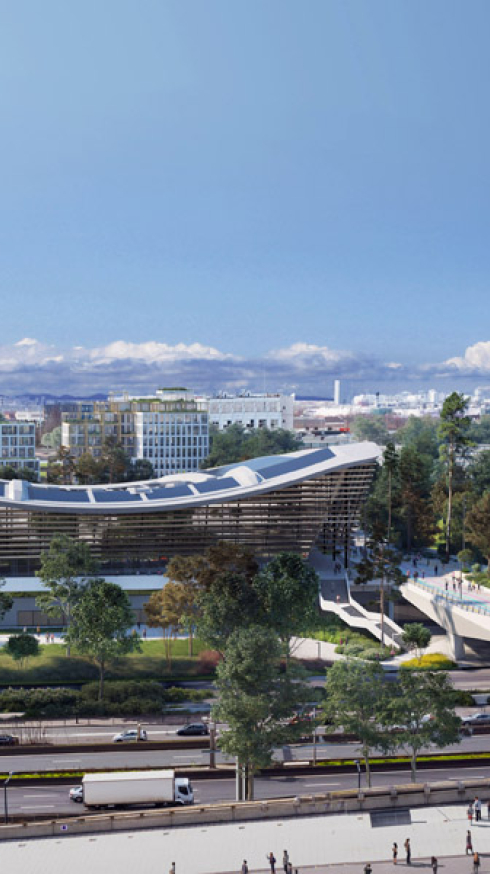

Article
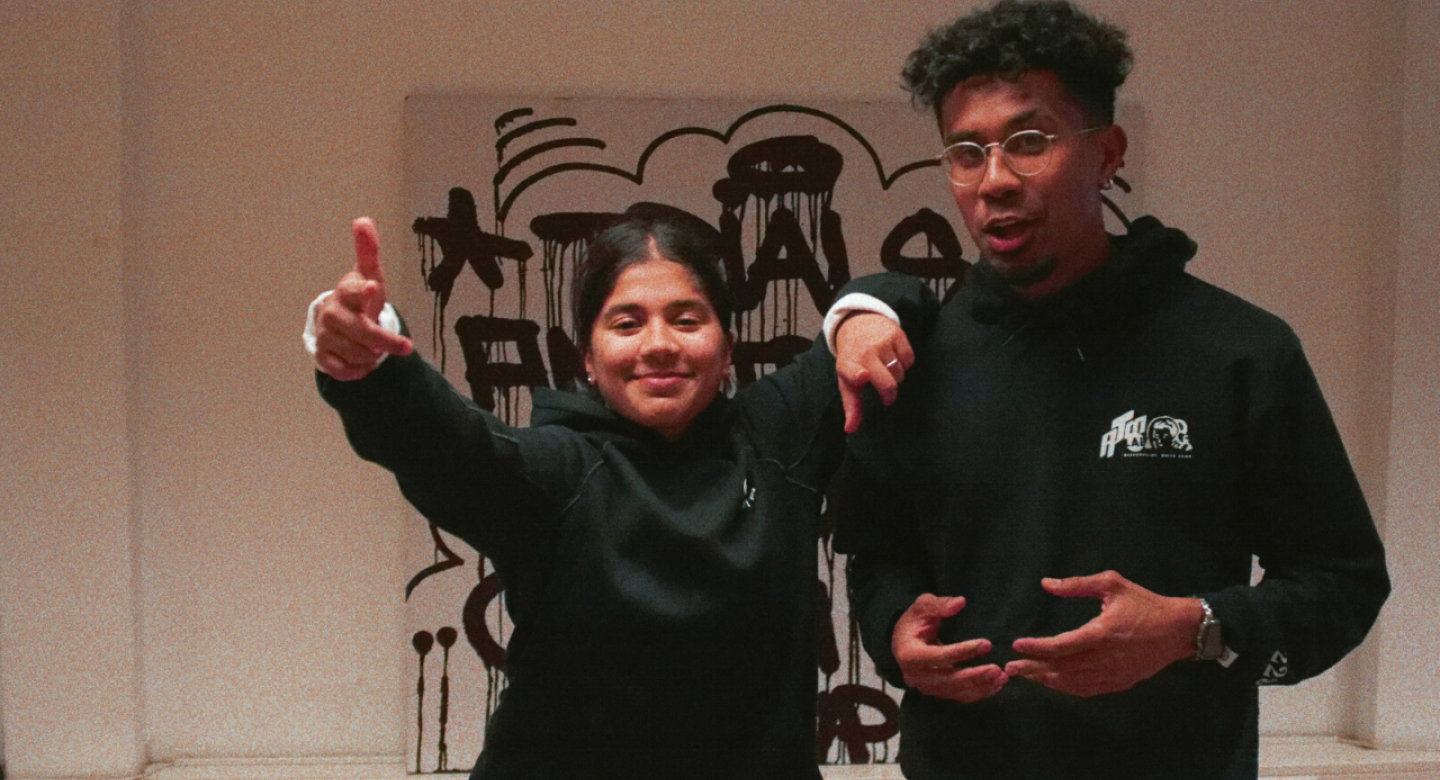
It's official! Breakdancing will be an official Olympic sport at the Paris 2024 Games. But what does this mean for the future of the sport, the community around it, and the global impact it's creating?
At 16 years old, Dutch breakdancer India Sardjoe is the current Red Bull BC One World finals champion, European champion, and Dutch national champion.
With all eyes on breakdancing's debut at the Olympic Games 2024 as an official Olympic sport, we visited the Haags HipHop Centrum to speak to India and her dance crew mate Toby Tanate.
Speaking to Maikel Walker, a World Dance Federation certified judge for breakdancing made us curious to learn more from dancers within the scene.
At a momentous turning point in the sport of breakdancing, let's meet India and Toby...
India: No, I never planned it or planned on being a world champion. Last year my goal was to travel and break (dance) wherever I could. And because of my travels I got a lot of invitations to battles because I started to get noticed.
I also got spotted by the World Dance Sport Federation (WDSF) and ended up doing the European championships where I wanted to build up my points and be more involved with this organisation. It was my second WDSF competition.
At first, I didn’t want to go to the European championships, but after placing in the top 32 at my first WDSF event in South Korea, I decided to give it a shot. I knew that I had the ability to place higher within Europe.
In July I got the wild card entry to the Red Bull BC One World finals in New York. But, I never saw any of this coming, because my goal was mainly to travel and dance. I have always been well positioned in the Dutch breaking scene and my aspiration was to take my dance international.
All of this just happened as part of that goal and aspiration.
Toby: I’ve known India for a while now because we’re from the same pre-school. Later in life, she joined a breaking class at the Haags HipHop Centrum and that’s where we really got to know each other. We knew when she signed up that she’d be a great addition to our dance crew called the ‘heavy hitters.’
We’re really competitive in dance battles and India was an instant fit because of the energy she brings. She’s not the biggest person in the room but her energy packs a huge punch and she lets you know she’s there. She can compete with the best people in this sport regardless of their size, age, or gender. I noticed her competitive nature early on.
It's really important to build ways for the next generation of breakers to come up in the sport. And India being a part of our crew was an important step. Seeing her succeed makes us really happy and proud.
India: It's funny because as Toby mentioned, he and I knew each other since pre-school, but now we know each other much better. Dancing as part of the crew connects all of us.
I know some dancers do it without a crew and that’s fine too. But I really value being part of this crew, because we get to travel and dance together. For me, it's really important that we’re training together, but it's more than just that because we’re all very close on a personal level. We support each other and we’re really like a family.
Community wise, the Haags HipHop Centrum gave me opportunities and it continues to give so many opportunities to the whole breaking scene in the Netherlands. So, this crew and the community around the Haags HipHop Centrum is really important for me to have in my life as a dancer.
Toby: My personal views towards breaking haven’t changed, as I still love it the same way. I see this as another advancement of breaking as a sport that’s going to get it more international exposure and with that, so many opportunities for breakers.
People that have never heard of breaking will now know of it in the context of an Olympic sport and this can only have a positive impact I think. Skating, surfing, and biking which are often seen as ‘urban sports’ have representation at the Olympics and this changes the way people perceive them.
It can and should be given the Olympic platform to inspire people globally from the communities surrounding these sports and ours. It's possible to take ourselves to one of the biggest stages in sport, and it's a very impactful moment for all of us.
India: I want to go to the Olympics and I’m currently working on qualifying. So, my training schedule is very different from someone who breaks as a hobby or even someone part of a battle crew that’s not looking at qualifying for the Olympics.
I train 4 to 5 times a week, leaving room for rest as well if my body starts getting tired, since breaking is an intense sport. If I have an upcoming battle or competition I change my practice and focus it towards my routine for the competition.
If I’m not battling, I focus on creativity and flow in my dance. Working on moves, creating, and stitching them all together.
"I want to go to the Olympics and I’m currently working on qualifying."
India: From what I’ve seen so far, companies surrounding the sport have been extremely helpful in creating a space for it to shine. Of course breaking is an art form and a means to express myself but it's also an intense sport.
A lot of people don’t realise it, but in order to break at a professional level, we definitely need support from brands. It's at the Olympics, so we need to treat it like an Olympic sport.
I think it doesn’t change it, but the interest and involvement of sports companies is a good thing that’s required by dancers.
Toby: Yeah, it's a great thing that sports companies are interested in us now and I urge more of them to take a look at what we’re doing and reach out.
Toby: We’re being supported by the government and municipality of The Hague currently. At the Haags HipHop Centrum we were given equipment that’s vital to our training, like large foam mats which allow us to practice flips. The availability of this equipment during our training sessions allows us to keep progressing our skills and match what’s happening internationally.
My view on getting support in the way of equipment or finances for break is that it helps us not only improve ourselves but also serve as an inspiration. If there are kids aspiring to be breakers, it's nice for them to know that they have the facilities required to make it happen in their city. My hope is that what we achieve as a result of having the right infrastructure gets people to start breaking all over the country. And the world.
You can only get so far by yourself as a breaker, but at a certain point we really need a solid ecosystem around us which allows us to take our skills to the next level. The right equipment and partners who believe in us.
So yeah, more support and more eyes on us are always nice.
India: No. To be honest, it's not similar or on the same level yet. Other countries have a lot more facilities and I’m not sure sometimes why we are lagging behind in this area.
But, we’re busy making improvements. I’m involved with The Hague Topsport to get my own strength and conditioning trainer and mental coach as well as facilities I require for my training.
It’s really important for me and other athletes to have access to world class facilities, support teams, and an overall strong ecosystem for breaking to allow us to compete with the best.
India: It starts with the World Dance Sport Federation (WDSF) rankings. These are world rankings and involve doing World Series competitions. If you place in these competitions you get points that add up and put you on a roster of all the dancers globally connected to WDSF in terms of breaking.
For example, next week I’m going to be in Japan at a WDSF World Series event to get some more points added to my ranking globally hopefully. So, that’s one way to get noticed by the selection committee for the Olympics.
However, there’s also two events held by the WDSF this year which guarantee a straight placement at the Olympics if you win. I’m doing both by competing in WDSF World Series events, but later this year I’ll also be in Poland competing for a direct entry spot at the Olympics.
So there’s various ways that you can qualify.
Toby: It’s possible! Just believe in your kid.
With the right equipment and a good support system anything is possible. If someone signs up to classes right here at the Haags HipHop Centrum they can pursue their dream and maybe even go to the Olympics. I mean, just look at India.
It also could be another school or I would even encourage kids to start by themselves at first. You could be like India and want to pursue it as a career and go to the Olympics or you could also just want to express yourself and have a great hobby that connects you to a community and keeps you active.
I encourage anyone who wants to start breaking to do it. And I think parents should support this, because it's a great sport to learn and you could even make a career out of it.
Toby: If you are curious and like to explore and want to put the time and effort in. Then yes, it’s also possible I think. Because, with breaking you can start with the bare minimum even if you don’t have the equipment that some places and people have.
Try and find battles and a community to make yourself known. If you build connections within a scene you’ll find people who are happy to teach you and will take you to the next level.
That’s how breaking used to be when it started. Limited resources and a strong community pushing each other forward and connecting through dance. Now we have equipment and all the stuff necessary to make champions. But it was also just as possible back in the day.
Have an open mind and challenge yourself to do it. And you can make it happen.
India: I think that recently there’s been a big rise with the B-girl scene. As far as I know, in the past it was very B-boy dominated but that’s been shifting due to more of us showing the world what we are capable of. And we’re being supported by brands and competitions that have started to be more inclusive.
At the Olympics too there’s both a B-boy and B-girl category. In dance battles and competitions in the past that wasn’t always the case. Of course, I’m really young still so I can’t say too much about what it used to be like back then from experience as I wasn’t around.
But, right now I don’t notice any difference between myself and a B-boy. When I was younger I would do dance battles in the mixed category and beat a bunch of B-boys. Even right now, I’m in the B-girl category for some competitions but I think I could compete in the mixed category on equal footing just like I always have.
And the feeling I get within the scene of breaking is that no one is treated differently. It’s very inclusive in that way.
India: You have to ask Toby haha, because to be honest I just love whatever the DJ puts on when I break. I listen to everything and I don’t have one specific hype song. I love all kinds of music.
Toby: The song I’d pick is ‘Boom’ by The Roots. It's a really upbeat song that’ll give you a lot of energy and is also a song we dance battle to. That’s the one I’d pick!
"With the right equipment and a good support system anything is possible...I mean, just look at India."

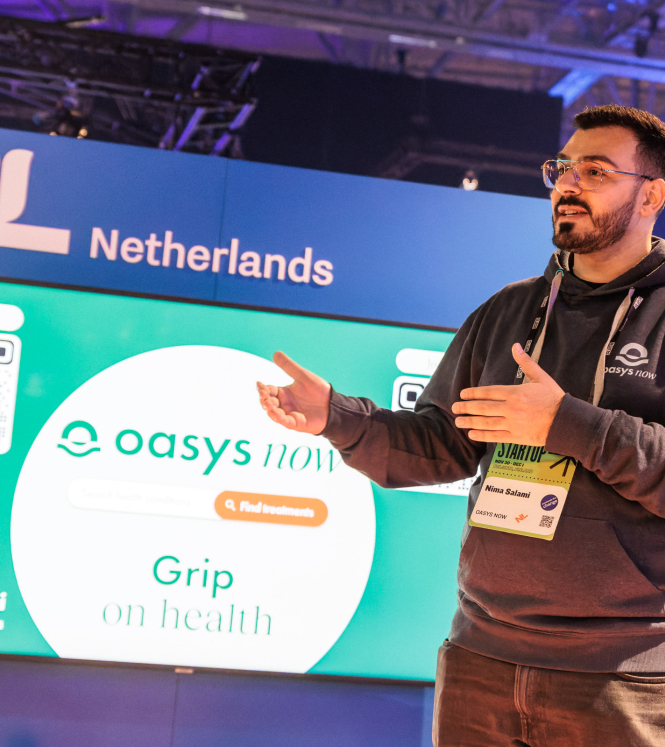
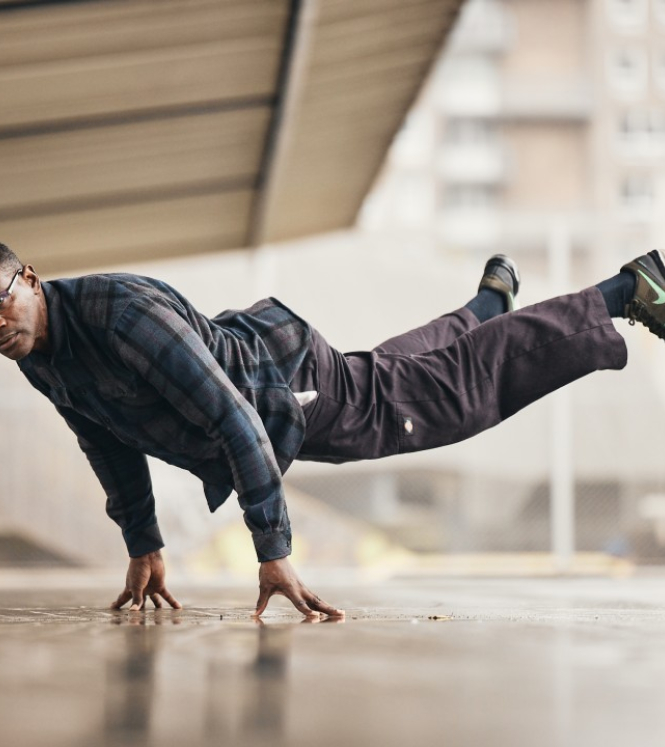
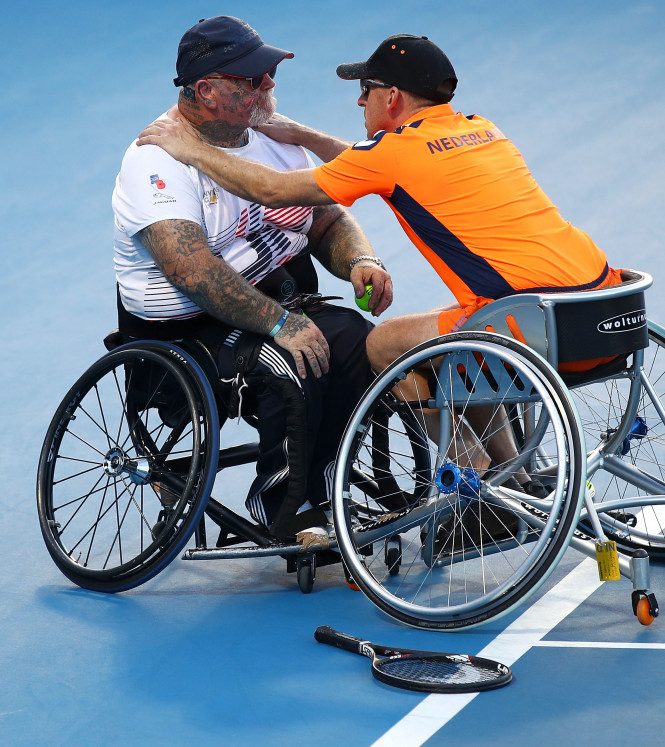
Want to know more about how you can work together with the Netherlands to achieve your goals? Or how you can help contribute to or spread the word on campaigns, events and initiatives? Contact us directly at info@nlplatform.nl so we can help you connect to the right people.